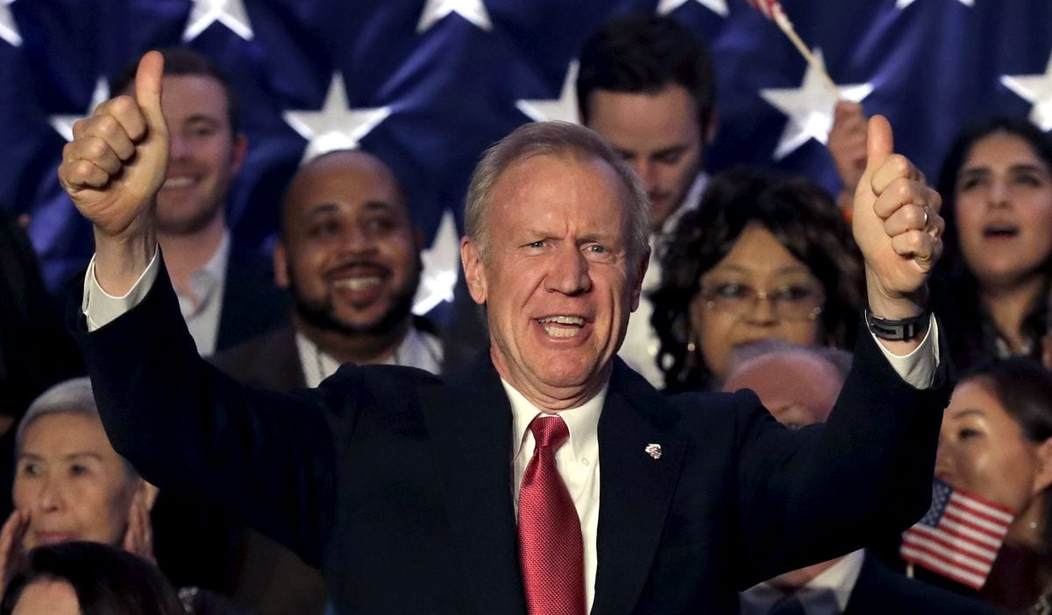Harvey, Illinois, is located about 50 miles northwest of downtown Chicago on the old Northwest commuter train line. The city of 25,000 saw a boom in the 1950s and ’60s when returning veterans from World War II moved there to enjoy easy access to the city and other amenities of suburban life.
But as with many suburbs around the country, the oil shocks of the 1970s took a heavy toll on the economy of Harvey and people began to move away. By 2016, the city had one of the highest unemployment rates in the state and was named one of the 10 most dangerous cities in Illinois.
And they have a pension crisis unlike any other in the state.
The situation is so bad and the public pensions so underfunded that the state of Illinois is now garnishing the revenue taken in by the city. Harvey has been forced to lay off 25% of their police force and 40% of their firefighters. And it’s only going to get worse.
From the newsletter of the Illinois Opportunity Project:
To make matters even worse the State Comptroller’s office, according to state law, can garnish city revenue to keep up with pension payments. This has let essential services go untouched and the city unable to serve its most vulnerable population. The irony of the state having to step in to control local pension payments when the state’s pensions are roughly $130 billion underfunded is yet another embarrassing example of how Illinois has become one of the worst governed states in the country.
Who is standing up for the families in Harvey? Is it Democratic Mayor Kellogg who has been under investigation multiple times for insider deals and fraud? Democratic Cook County Commissioner Toni Preckwinkle who supported Democratic Cook County Property Assessor Joe Berrios who was exposed for his corruption in assessing property values to benefit the rich and punish the poor? The Democratic majority in Springfield that has been propping up Ponzi schemes for years unchallenged and being held to no standards?
The situation in Harvey is not unique and is an ominous case study for the path that the state and other communities are moving towards. Overall, nearly two-thirds of Illinois’ 651 pension funds got less than their required contribution from their cities in 2016.
The problem is defined benefit plans. The plans are overly generous so that some retirees eventually earn almost 100% of their pay — or more. This has led to a ludicrous situation in Harvey:
The City of Harvey cannot afford to pay its bills and their employees so they were forced to cut 40 public employees from the police and fire departments. The city has an unemployment rate over 20%, effective property tax rates are over 5%, despite home values declining at an alarming 80% over the last 10 years.
Harvey families, homeowners, workers, and business owners have paid out nearly $25 million in pension benefits to 42 retired firefighters who have only contributed a collective $1.14 million to their retirement fund.
The longer that government takes to come up with a solution, the worse the situation will get. Some of the options are going to be very difficult to implement:
The Illinois Opportunity Project has long been an advocate for reforming the pension system and shifting state-funded pensions to a 401k style system. Politicians have proven time and time again that they are unable to manage the funds and have succumbed to pressures from public sector unions to overpromise benefits, thus enabling an unsustainable system at the state and local levels at the expense of hard working taxpayers.
[…]
State lawmakers have no other choice but to enact legislation to allow local units of government to file for bankruptcy. The state must loosen its reigns over local governments and allow them to reform their finances, otherwise everyone suffers and Illinois will continue to lead the nation in outbound residents seeking to escape a confiscatory government.
Harvey was already a dying community. But hundreds of cities and towns in Illinois and elsewhere in the country will suffer a similar fate unless pension reforms are enacted very quickly.
But public unions oppose any reform of their benefit system. They worked hard to buy those politicians in state capitals, and it will take more than a pension implosion to let them go.










Join the conversation as a VIP Member